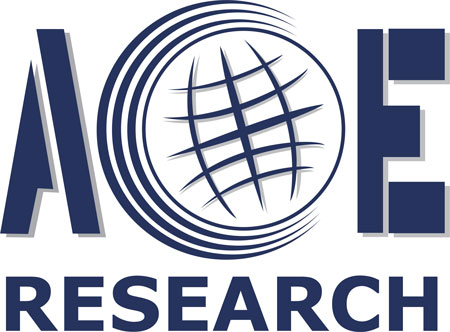Market research should never be underestimated. Many successful new businesses enjoy longevity because their owners conduct regular market research to understand their target market, identify consumer problems and pinpoint realistic competitors. In Pakistan, companies undermine the long term benefits of market research. Least weightage is assigned to market research when deciding relevant markets for products and services. Companies do have provision for market research but are reluctant to invest in getting a real-time market assessment and as a result, often their strategies and policies are ineffective in capturing a true market share of forecasted targets. This leads to inconsistency in growth, earning and customer retention in the longer run.
Market Research is the simplest way for entrepreneurs to keep up with market trends and maintain a competitive edge by sizing up your business opportunity.
Market research can be carried out at various stages of a business life cycle, from pre-launch and beyond. Having a greater understanding of your marketplace from the very start will enable you to create a sound business strategy to establish and grow your brand into one that’s better than the competition.
Market Research Objectives
The scope of the market research you’ll undertake is influenced by your overall objectives – what do you want to learn about your market and the external factors influencing it?
The objectives will also determine the types of market research that you need to undertake in order to be successful: Research could be Primary market research or Secondary market research.
Long term Benefits of Market Research:
- It helps businesses strengthen their position.
Knowledge is power. Use market research to gain a better perspective and understanding of your market or target audience and ensure that your firm stays ahead of the competition.
- It minimizes any investment risk.
This is a simple but vitally important and often business-critical consideration. Spending what is often only a small proportion of your investment in researching and testing the market, product, concept or idea makes sound business sense.
- It identifies potential threats and opportunities.
Both primary research (fieldwork) and secondary research (desk research) can be utilized as an insurance policy against both obvious dangers on the road ahead. Coupling this with some qualitative research for deeper probing can highlight certain opportunities or warning signs that may otherwise have been missed.
- It helps to discover yours and your competitor’s strengths and weaknesses.
It’s vitally important to adopt an ‘eye’s wide open’ approach to any market research project which is why it’s often advised to work with a market research agency to ensure completely unbiased reporting. Use research findings to adapt and learn from your weaknesses whilst capitalizing on your new-found knowledge from competitor analysis to take advantage and forge ahead of the pack.
- It facilitates strategic planning.
What is the foundation of your business strategy? If it’s evidence-based and you’ve taken the time to invest in your own (and hopefully ongoing) research, you can be confident that you’ve given yourself the best chance to achieve your business goals.
- It helps in spotting emerging trends.
Staying ahead in business is often about being the first, being the best or doing something that no-one else has thought about. Regularly taking the ‘pulse’ of what’s hot and what’s not in your industry is a key discipline. Speak to your research agency or research consultant about the range of techniques you can employ to spot and exploit these trends.
- It assists businesses to stay ahead of the competition.
Being the best demands a relentlessness to keep getting the basics right combined with a curiosity and willingness to innovate. Knowing how to leverage the findings and insights you extract from market research, audience research and data research are the keys to both getting ahead and staying ahead.
- It provides revenue projections.
A market forecast is a core component of a market analysis projecting the future numbers, characteristics, and trends in your target market. Potential customers can then be divided into segments. You want to focus on the best market – which is not necessarily the largest one or the market with the highest growth – it will be the one that matches your company profile.
- It focuses on customer needs and demands.
There are so many important reasons to keep your customers at the center of all that you do in business and the same goes for research. With so many ways to reach customers using online panels, web communities, telephone surveys, depth interviews, and focus groups, market research keeps you attentive to where you can improve your proposition, customer service or product offering.
- Target Audience ‘Core Essential for Business Growth’
Most new businesses will encounter three different types of customer i.e. the ‘savvy’ purchaser;
A ‘savvy’ customer is someone likely to be aware of all the prices offered by your major competitors. Another type is of the industry influencer, someone that is not only highly knowledgeable about your target market; they can also influence other prospective customers that trust their opinion. Last but not least the end-user; they are a type of customer that will use your products or services on a day-to-day basis.
- It helps to evaluate the success of business against benchmarks.
An International survey found that companies that benchmark achieve 69% faster growth and 45% greater productivity than those that don’t. Use market research for competitor research, employee engagement surveys, and to highlight performance or knowledge gaps and areas for potential growth. This will open your company up to thinking about new methods, ideas, and tools to improve your business effectiveness.


dorinc 1b4b43744d https://wakelet.com/wake/LHw1PcBYxOpsP1XfvUSQV